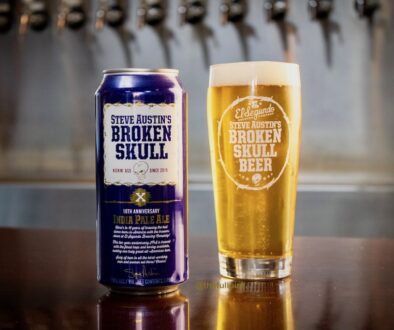Samuel Smith’s Yorkshire Stingo – Second Annual Release
 Merchant du Vin and Samuel Smith’s Old Brewery are proud to announce the upcoming arrival of the new vintage of Samuel Smith’s Yorkshire Stingo – look for it starting in August, 2010.
Merchant du Vin and Samuel Smith’s Old Brewery are proud to announce the upcoming arrival of the new vintage of Samuel Smith’s Yorkshire Stingo – look for it starting in August, 2010.
This barrel-aged, bottle-conditioned strong ale expresses the elegant refinement of every Samuel Smith’s beer, but with depth, length and power found in no other beer. This is a must-try beer: Extreme meets over 250 years of brewing experience. Vintage dated, Stingo is available nationally each year around England’s “Yorkshire Day,” August first; annual releases will vary – this year, Stingo fermented to 9.0% ABV. Production of this fine ale will be extremely limited.

Samuel Smith’s Stingo shows rich, superb flavors of toffee, raisin, dried fruit, and caramel; waves of flavor ascend and ebb leaving soft oak notes. Hops add a perfect enhancement to dramatic malt and fermentation flavors, but without pushing bitterness past the point of balance. Bottle conditioning – that is, including live yeast in each bottle – produces soft carbonation, a fruity aroma and finish, and allows Stingo to age and develop in the bottle.
Serve Stingo alone as the ultimate digestif, or pair with beef, wild game, or demanding deeply-flavored foods like pickled fish or strong aromatic cheeses. Try with lamb, duck, smoked meats, or Kalamata olives; serve in a nonik glass or red wine glass and remember to pour gently, leaving the remaining brewers yeast behind in the bottle.



